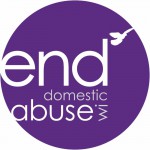Following Club Q Murders, State Coalition Against Domestic Violence Highlights Link between Domestic Violence & Mass Shootings
Madison – Following the November 19 Club Q shooting in Colorado Springs, in which 5 people were shot and killed in what is being charged as a hate crime against LGBTQIA+ community, End Domestic Abuse Wisconsin (End Abuse) calls for cultural and legal shifts that reflect the data-backed relationship between domestic violence, firearms, and mass violence.
According to the latest Domestic Violence Homicide Report, Wisconsin domestic violence homicides took place a rate of 1 death every 4.5 days in 2021. The homicide method in the majority of cases – 67% – was firearms, and over 1/3 of those who used a gun were legally prohibited from possessing that firearm. In addition to 2021 homicide data, the report spotlights the link between mass violence and intimate partner violence (IPV).
The statewide coalition – alongside other experts in the field – calls the intersections of domestic and gun violence a public health crisis. Notable is Colorado’s red flag law, which is intended to reduce homicide risk by removing weapons from those who are known to use violence and pose increased public safety risk.
“Domestic violence,” said Minkens, “is a public health issue. Firearms regulation is a public health issue. The Club Q shooter had a history of domestic violence. Yet, despite Colorado’s red flag laws and the shooter’s history of violence, they accessed the gun used to slaughter five people and injure many more. Until these issues are acted on for what the data shows them to be – public health crises – we will continue to see massacres.
End Abuse routinely includes firearms regulation, especially Extreme Risk Protection Orders and Universal Background Checks, in their statewide public policy advocacy as a top priority for lawmakers to enact in order to protect domestic violence survivors and the public more broadly. End Abuse’s legislative agenda highlights the disparate impacts of violence on marginalized communities, including those in the LGBTQIA+ community.
We know,” said Minkens, “that historically excluded communities – especially those with marginalized identities related to race, class, sexual orientation, disability, and gender – are particularly at risk when we look at the intersections of domestic violence and gun violence. Disabled, BIPOC, and LGBTQ folks deserve dignity, safety, and support, not legislation and cultural narratives that dehumanize and further marginalize them. We stand with the LGBTQ+ community in the wake of this tragedy, and call for those with the power to enact meaningful change to end harmful laws and narratives that result in bloodshed.”
NOTE: This press release was submitted to Urban Milwaukee and was not written by an Urban Milwaukee writer. While it is believed to be reliable, Urban Milwaukee does not guarantee its accuracy or completeness.




















i have been waiting for a domestic abuse agency to say something about the violence against women that is occurring in our city and nationally. women are being shot by partners, ex-partners, and boyfriends ( a strange word to use in the context of abuse). where are the voices of organizations that provide shelter to women who are abused. it is time to hear your voices again. we know why women die. men still think they have that right. how far have we really come since 1978 when sojourner truth house was first established.